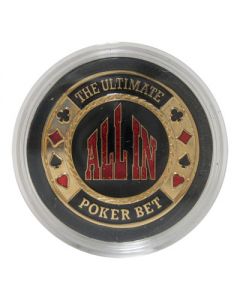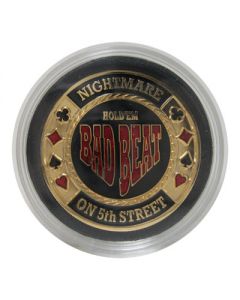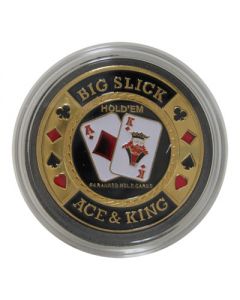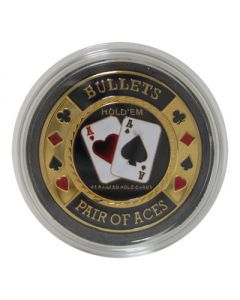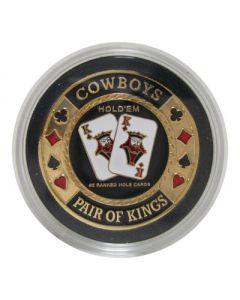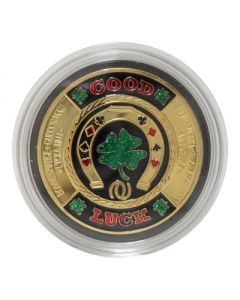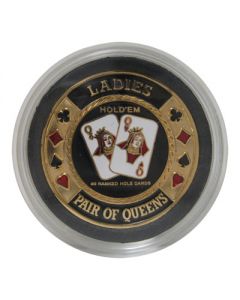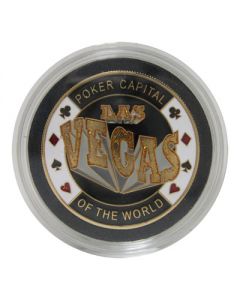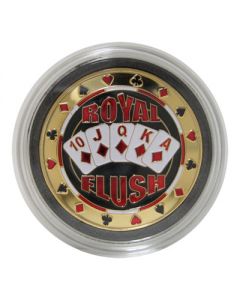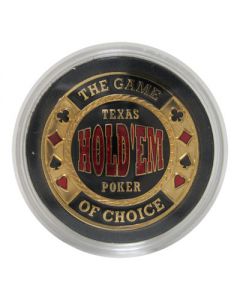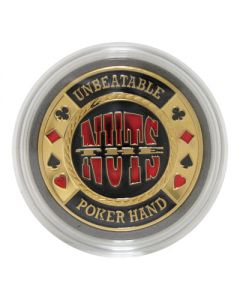When you’re playing poker, it’s important to protect your hand if you expect to win. While the phrase may sound relatively self-explanatory, it has several different meanings.
Avoid the Snatcherwock, My Son
During the course of a game, the dealer can become distracted and sweep live cards into the muck, which consists of all dead cards and fouled hands. If this happens, a player will lose the entire stack of his or her chips, whether in a cash game or a tournament. If your live cards are mucked, there is nothing that can be done to remedy the situation beyond an apology from the dealer and management. In order to avoid this problem, always use a card protector or a card guard to prevent unintentional mucking of your hand.
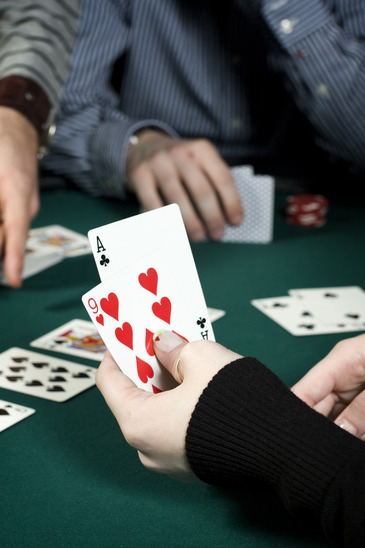
Umm…Where are My Cards?
Another problem common to poker players is the inadvertent combination of your cards with those of another player. Those seated on either side of the dealer are most at risk for this problem. A player who flicks his or her cards to the dealer while folding may end up landing the cards on top of those occupying Seat 1 or Seat 10. In this case, both hands are declared dead. As in the case of accidentally mucked cards, there is nothing the affected player can do about it. Again, the use of a card guard or card cap can help save your hand from disaster.
Don’t Leave the Table
If you’re in the middle of a hand of poker, do not leave the table. It is not uncommon for a player to be all in with one or two community cards yet to be revealed. The player sees his opponent’s cards and feels that the situation is hopeless. After he leaves the table in disgust, the unexpected occurs. He catches the single card that makes him the winner or the game plays out in such a way that all the players split the pot. No one is going to feel the need to seek out the disgruntled player to claim his chips.
In other cases not involving showdowns, a player will step away from the table to make or take a phone call or to discard something. This player fully intends to return, but the dealer, seeing no one at his place, decides to muck this player’s cards. If you stay until the hand is over, you won’t find yourself in these situations.
Sailing, Sailing and Landing on the Floor
At times, one or more of a player’s cards may end up on the floor. This will most frequently occur when the dealer’s pitch catches an updraft and floats past the player. Should this ever happen, the card is treated the same way as if it had landed face-up on the table. The player will receive a replacement card.
However, if the card ends up on the floor by any means other than the dealer’s fault, the player’s hand will be declared dead. Declaring the hand dead is a security measure to prevent those who would perform sleight-of-hand tricks from switching cards while pretending to pick up a stray card from the floor.
A common way that cards land on the floor is from a player forcefully throwing his or her poker cards on the table. The cards tend to go flying if thrown down in this fashion. This often occurs when a player is angry, but it can also happen when a player with the superior hand reacts with excitement. To avoid the problem of cards on the floor, don’t pick your cards up from the table. When it’s time to reveal your hole cards, turn them over without picking them up.
Watch the Dealer Like a Hawk
Despite the fact that professional dealers are trained to do their jobs well, they can still make mistakes. If you’re playing a home game with friends and family, pay attention to see that the chosen dealer follows the established rules. At the end of a poker hand, the following sequence should take place.
- Kill the losing hand(s).
- Give the winner the pot.
- Move the dealer button.
- Drop the rake.
- Muck the winning hand.
- Start the scramble for the next hand.
If the dealer should happen to remove your cards after the showdown but before awarding the pot, that means that your hand has been perceived as a loser and is on its way to being mucked. Most of the time, this move is correct. However, the dealer may make a mistake and kill the winning hand. To prevent this problem from occurring, you will need to pay close attention and speak up quickly to prevent your hand from being unfairly mucked.
If you were too slow to react, there’s still hope. Unlike other problems such as the loss of live cards, this situation involves cards face-up on the poker table. The other players will have seen your cards and can tell what they were, even if the dealer should remove them to the muck pile. If you’re playing in a casino, the poker room management can resort to overhead cameras if necessary. Because both of these remedies are time-consuming and can lead to contention, it’s best to pay close attention and to react quickly.
Perfect Your Peeking Technique
Poker cards are meant to bend. Unlike older cards, which were made of paper, a current deck of cards are covered with a plastic overlay. Casino-quality poker cards are even higher quality and are made of plastic. The composition of casino poker cards means that they are virtually impossible to crease.
To avoid roving eyes, peek at your cards by lifting a single corner. Angle your cards so that the identifying information is pointed at you, and surround the cards with your cupped hands for your peek. Using this method will prevent other players from seeing your cards, as they will need to have their heads between your arms to do so.
Perhaps the single most important thing you can do to protect your cards is to keep a sharp pair of eyes in your head and to use card guards. Both of these tactics can help prevent your live cards from being swiped and prevent you from losing a winning hand to another’s mistake or carelessness.

